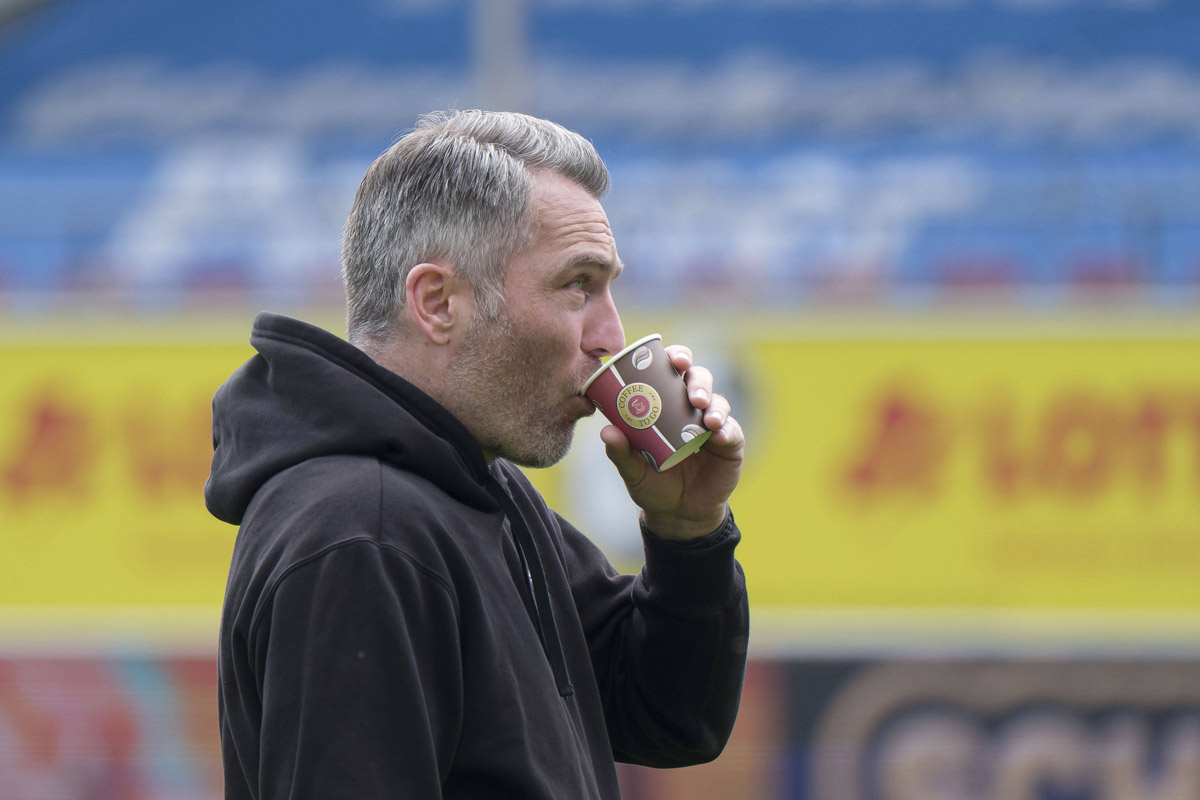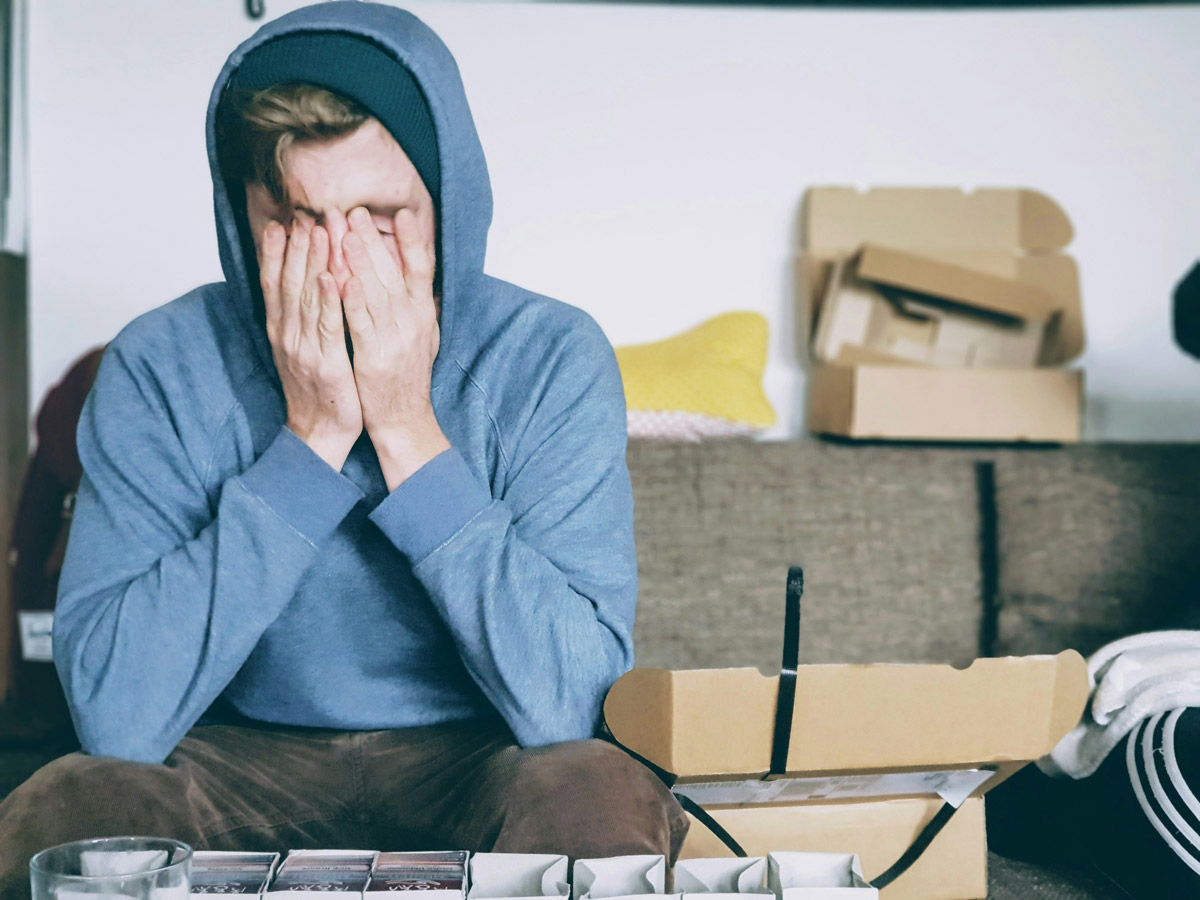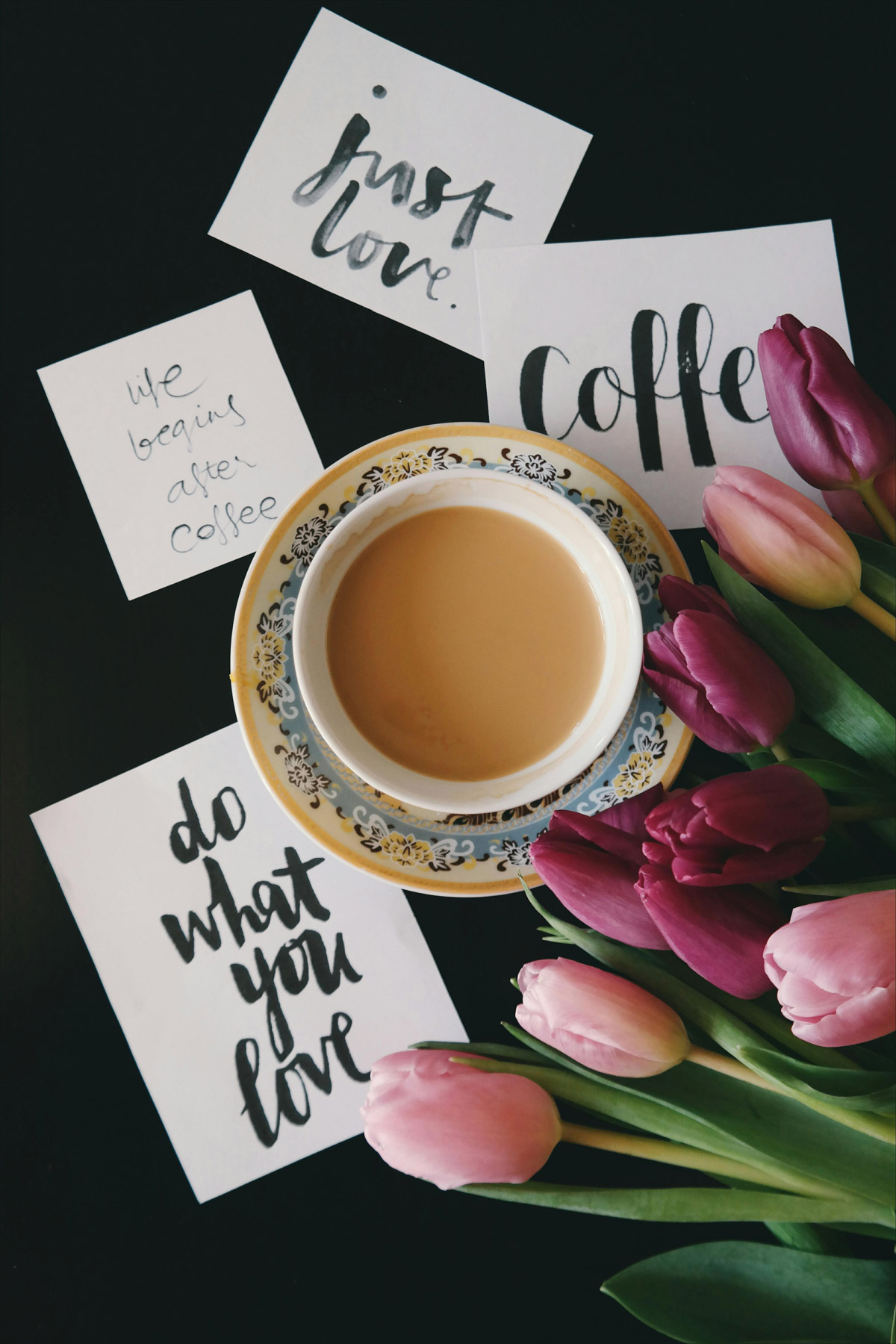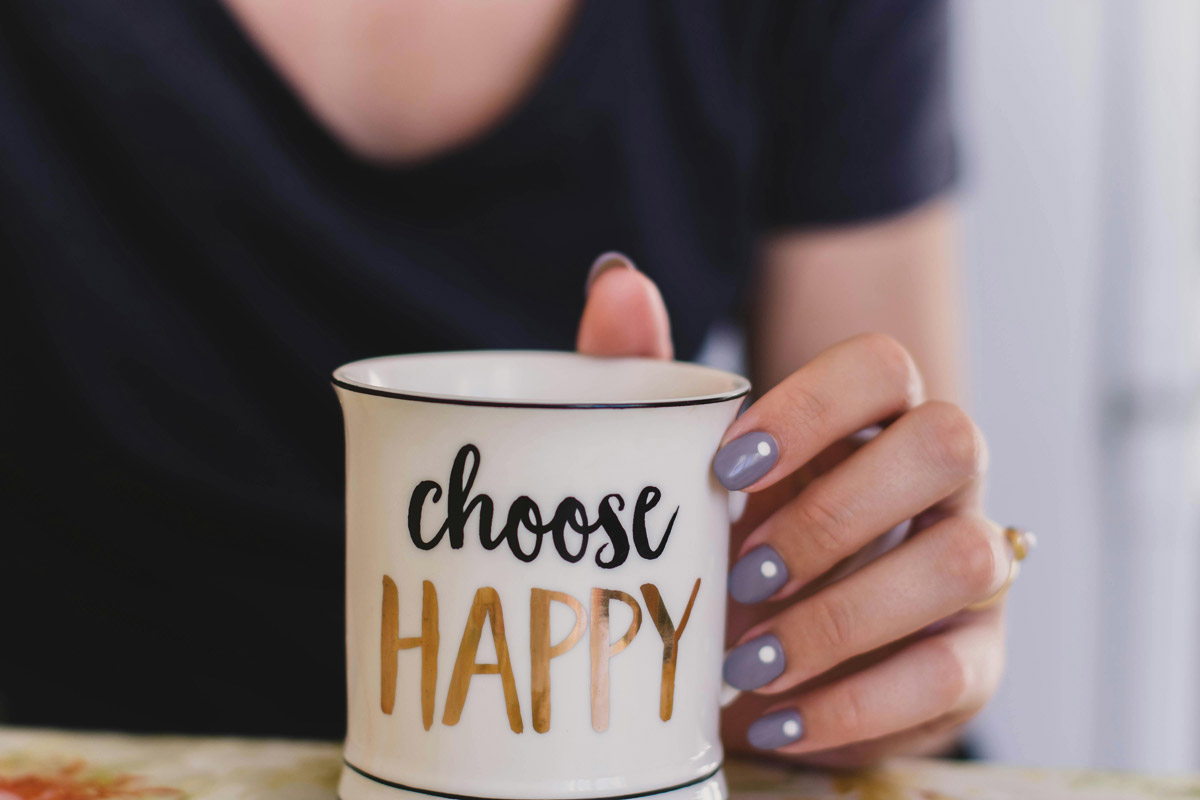
First they came for one week out of each month of our coffee intake. Then they came for the first two hours after waking before having our first cup each day. And now? Now they’re coming for our coffee drinking entirely, or at least by a significant margin. I don’t know about you, but this latest suggestion is the sugar packet that’s breaking this camel’s back! Real Simple consulted an array of MDs, RDNs, PhDs, and nutrition experts, and sure, at first they lull us in touting the merits of coffee — it’s rich in nutrients and polyphenols and antioxidants! — but then one by one they tick off how each benefit can also be a detriment. What is life but a series of double-edged swords, I ask you?! But fine, hear out the experts:
For a better night’s sleep & less anxious day: “The caffeine found in coffee blocks adenosine receptors, and adenosine promotes sleep,” says Edwina Clark, RD, a registered dietitian. “Therefore, cutting out caffeine can help improve sleep for some.” … The same instant boost of energy we rely on caffeine to provide us with can also cause some people to experience a spike in anxiety. “Anxiety can come with a load of health issues, from poor heart health, to high blood pressure, to improper sleep cycles,” [Laura Purdy, MD] explains. By avoiding the caffeine in coffee, we can also avoid, or at least reduce, our levels of anxiety.
An end to energy crashes: Quitting coffee can result in fewer fluctuations in the amount of energy you have throughout the day, [Shoshana Ungerleider, MD] points out. “When you stop drinking coffee, the body’s dependence on caffeine diminishes, leading to more consistent energy levels without the crashes associated with caffeine withdrawal,” she explains. Also, because the lack of caffeine may lead to improved sleep quality, it improves your chances of waking up feeling refreshed.
Listen to your gut: “Caffeine can stimulate gastric acid secretion and exacerbate symptoms of acid reflux and irritable bowel syndrome,” says Barbara Kovalenko, RDN and nutrition consultant at Lasta. … If your stomach and digestive system isn’t the same after drinking coffee, giving it up can help things get back to normal. This is because “caffeine can irritate the stomach lining and increase acid production, leading to symptoms in susceptible individuals,” Ungerleider explains.
It’s a psychoactive drug, man: Because drinking coffee is such a normal part of everyday life, it can be easy to forget that caffeine is a drug — the most consumed psychoactive drug in the world, no less. And, like some of the other substances that affect our nervous system, such as antidepressants and other psychiatric medications, our body doesn’t respond well to quitting caffeine completely and suddenly. … In order to avoid experiencing the unpleasant effects of withdrawal, [Lina Begdache PhD, RDN] recommends weaning yourself off coffee over the course of a few days. “Quitting cold turkey will lead to withdrawal symptoms ranging from headache, fatigue, decreased energy and alertness, to drowsiness, depressed mood, and difficulty concentrating,” she says.
Try tea: Don’t forget that coffee is not the only caffeinated beverage in town. “If you want to quit coffee, but can’t live without caffeine, try swapping your coffee for caffeinated teas, such as black tea, green teas, or matcha,” Clark says. “Caffeinated teas typically provide far less caffeine than coffee, but it may be enough to avoid a caffeine withdrawal headache.”
Replace the ritual… with tea! If you typically operate on autopilot in the mornings, you may find yourself reaching for your favorite mug — and maybe even pouring yourself a cup of coffee — without thinking twice about it. This can be especially challenging if you usually take a few minutes for yourself while drinking your morning coffee, before tackling the rest of the day. One possible solution is continuing your routine with something other than caffeinated coffee in your mug. “Coffee alternatives like herbal teas or decaffeinated coffee can satisfy the ritual of drinking a warm beverage without the caffeine,” Ungerleider says.
While I still protest the clearly political and frankly anti-economy smear campaign being waged against coffee, I confess that I intellectually understand the arguments they make here. (Well, everything except for the over-the-top push at the end for tea. Was this article sponsored by Bigelow? Or Snapple?) Naturally what helps wake you up would also keep you from sleep; what amplifies your alertness can also overstimulate the system. There’s a balance to that. As my mother likes to say to me (usually as a preface to commenting on a habit of mine she doesn’t care for), knowledge is power. Armed with these experts’ suggestions, we can weigh the needs of each day (do I need to perk up or is getting to sleep more important?) and make a decision accordingly… like deciding to keep drinking coffee! No, no, I jest. Kind of. Look, in one of the multiverses out there I actually get to be the Dunkin’ Donuts heiress — I gotta toe the coffee line! So, are there benefits to cutting coffee? Of course. Do I care? Of course (not).
Photos credit: IMAGO/Eckehard Schulz / Avalon, Kristina Paukshtite and Brigitte Tohm on Pexels, Christian Erfurt on Unsplash














Life long coffee drinker here. A couple of years ago I was going through some health stuff and ended up quitting coffee and switched to tea. I noticed pretty quickly that I was getting a better nights sleep than when I drank coffee. And still having the ritual of sipping on something hot in the morning is nice.
I remember being in my 20’s and being able to drink coffee all day and it having no effect on me. The glory days!
Now I’m in my 50’s and I have one lightly caffeinated drink in the morning and no more, or else I will sleep terribly, and if I’m really lucky, will get anxiety on top! But I still love coffee. Just decaf these days.
I will be drinking coffee on my death bed.
Same here – they will pry the cup from my cold, dead hands.
I will die with a cup in both hands and my coffee cup collection surrounding me (along with all my shoes).
I believe I am an undiagnosed ADHD adult who uses caffeine as a method to keep myself focused throughout the day. I have no inclination to drop my favorite nonprescription drug.
I feel this deep in my spirit. I have ADHD too, and coffee doesn’t work with my brain chemistry the way it works on others.
It can help my brain focus on tasks, but it has virtually no stimulating effects on me. I can have a cup of coffee right before bed, and fall right to sleep.
Probably undiagnosed adhd here too. My fuel for my whole day is that cup of coffee to go, in my car with milk no sugar, I don’t even have enough focus to drink it all, at 4pm it’s still half drank, no food until dinner and im not hungry. 🤷🏻♀️ But I can’t go without that coffee. Tried switch to tea a few times, but not the same.
Team Tea. I hate the smell and taste of coffee. Truly don’t understand the obsession
As I read this article sipping my strong brewed black elixir of keeping others safe, I think to myself, every single “study” ever done about coffee consumption is contradictory. So yes, while I continue to sip I will pretend I might cut down ( mostly 1- 14oz cup per day now) or I might not. I think I will allow the Finnish people to be my lodestar. After all they are the highest consumers of coffee and the happiest people in the world according to surveys.
Not giving up my coffee. I gave up alcohol, but you will pry my morning hand-poured coffee out of my cold, dead hands. Tea is for the mid-morning lull, a totally different situation!
There are all kinds of good coffee now. The most coffee brands are providing different options for acidity. I have a sensitive stomach and love multiple cups of coffee daily. So, I started using the coffee beans with the lowest acidity level. I don’t have any stomach problems now while still enjoying my coffee. Also, CB, is Big Coffee sponsoring these articles? 😂😂 Loving the latest coffee related articles.
I was forced to go cold turkey on coffee. After an accident I was in ICU . I developed a horrible withdrawal headache. I will continue with my morning mug of coffee until I can no longer hold the cup.
I am currently battling a bout of stomach flu (day 3, and it seems to slowly be getting better) so I have had almost zero coffee since Monday and I am fine. Okay, I never drank that much to begin with and it’s usually iced in the summer or mixed with hot chocolate in the winter, but still. Aside from a bit of fatigue in the afternoon, it’s hasn’t been that bad.
Long time CB reader, rare commenter: the one thing that got me to reduce my coffee consumption was my GYN NP telling me it would reduce breast tenderness during PMS. For 7ish years now I’ve reduced myself to 1-2 cups a day, with herbal tea in the afternoons, and have felt a significant decrease in pain. Other than that benefit, I’d be back to my usual 3-4 a day.
Does the original article mention any studies that support all these claims? Because even experts’ opinions are still just opinions.
First they came for my cigarettes (quit 20 years ago), then they came for my fast food (only very rarely for a treat), then I tossed out the alcohol. You can take your recommendations about my coffee and shove them. I refuse to give up my one last vice. I had to quit it for a year when I quit smoking (they go together so well) and it was most unpleasant. I do everything else I am supposed to, work out, walk, yak yak yak, I am not giving up this one last thing. I will die on this hill.
All the articles about coffee and health are so weird to me. I spent my childhood in Guatemala, and everyone, including children, drank coffee at meals — and no one was obsessing over possible health issues. And there wasn’t a national epidemic of sleeplessness, either. Coming back to the USA and finding out that there was actual controversy around coffee — amount, decaf vs caf, adult drinkers vs kiddie drinkers — was a bit of a surprise.
And Guatemalan coffee is to die for. You can’t imagine.
I swear most of the stuff these reports have us obsessing over should be focused on the crap ton of unnecessary crap added to the food in America vs our actual consumption of them and forcing our politicians to address it through legislation. Other countries who don’t let food conglomerates actively poison it’s citizens don’t seem to have the same issues.
I have one small cup of coffee, that I rarely drain every morning. It wakes me up a bit and then I’m done. Leave me and my coffee alone.
Well, I’ve been a lifelong tea drinker and always avoided coffee – although as children, I recall our parents giving us coffee with added sweetened condensed milk from time to time.
These expert opinions contradict themselves so much these days, it’s confusing as heck.
Long story short: several years ago I suddenly began reacting to nearly everything I ate and drank, over and above my usual allergic reactions and was eventually diagnosed with Histamine Intolerance. Turns out that one of my biggest triggers was the green tea to which I had converted and had been having daily (no sugar). It was giving me racing heartbeats, palpitations, anxiety, insomnia and symptoms much like allergic reactions – itching, skin rashes, and especially dizziness, nausea, double vision and headaches. Overnight I had to give up my wonderful range of green teas. When I tell you I nearly cried while giving away my jasmine green tea!
Eventually, I switched to coffee as it was less of a trigger than tea. And eventually became a convert, and very discerning. Earlier this year I was advised to switch to decaf while undergoing medical tests before an MRI, which I duly did for around 3 months. Although I found some decent decaf ones, I found that my energy levels flagged enormously and that my sleep suffered more on decaf!
I switched back to normal caffeinated coffee two weeks ago and my sleep patterns have become so much better. I am getting more deep sleep. My energy levels are higher. I tested myself earlier this year and had a small cup of jasmine green tea and my head began spinning immediately. Lesson learnt.
As someone said above, I’ll be drinking coffee on my deathbed.
Just read about Yaupon tea, which has a long history in North America as a caffeinated drink.